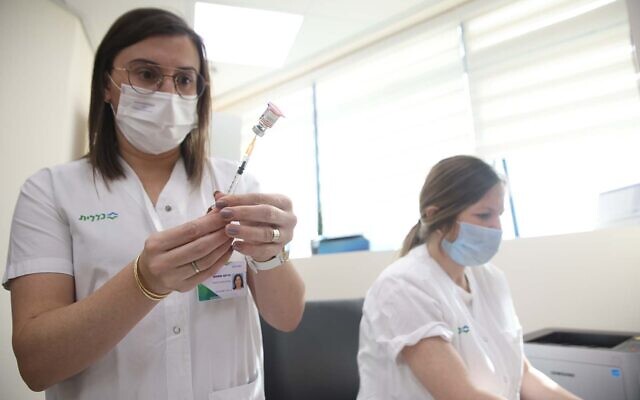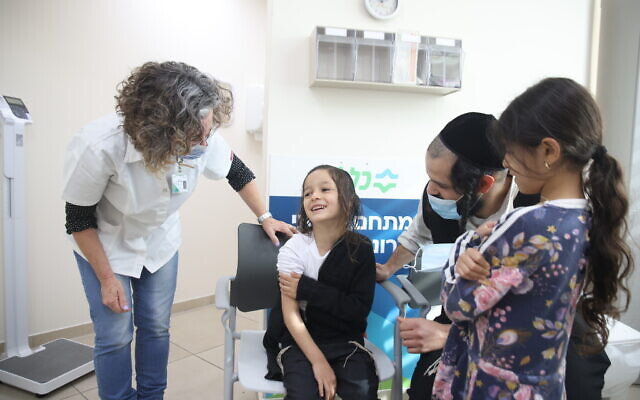Policy going into effect on Thursday put in place due to suspicion variant may stay contagious for longer, Health Ministry says

Confirmed carriers of the Omicron COVID-19 variant will be required to quarantine for 14 days, instead of the 10 days mandated for confirmed carriers of other coronavirus strains, the Health Ministry said Wednesday.
The new policy will go into effect on Thursday, the Health Ministry said, without specifying a specific time.
Confirmed Omicron carriers will have to be asymptomatic for the final three days of the two-week period in order to receive a certificate of recovery from the virus, the Health Ministry said.
“This update is being applied in light of the suspicion that verified carriers of the Omicron variant may be contagious for a longer period than observed in cases of other variants,” the statement said.
If someone is “highly suspected” of having the variant, but not confirmed by testing, they can leave quarantine after 10 days with special permission, the Health Ministry said.
The number of COVID-19 cases confirmed on Tuesday was the highest in six weeks, with children accounting for more than half of the diagnoses, according to the Health Ministry figures released Wednesday morning.
There were 794 new cases on Tuesday, the third day in a row that the figure had climbed. The last time the numbers were that high was on October 25, when 929 new patients were diagnosed.

The positive test rate for the virus was 0.75 percent on Tuesday, the highest it has been in over two weeks.
In addition, the virus reproduction number, R, was 1.07, having steadily climbed from 1 over the past four days. Any value above 1 means each person with the virus infects, on average, more than one other person, meaning infections are spreading.
The death toll stood at 8,210, with no new fatalities in the previous 24 hours, the ministry said. Over the past seven days, eight people died of COVID-19.
There were 103 patients in serious condition, though the number has been steadily dropping over the past month since reaching 157 on November 9.
The rise in cases came as Israel, along with the rest of the world, has grappled with the spread of the new Omicron variant, which is believed to be highly contagious. So far, at least 21 cases have been confirmed in Israel.
The emergence of Omicron, first detected in South Africa, has prompted global travel bans and led Israel to again shut its doors to most foreigners. The government also tightened quarantine rules for fully vaccinated Israelis returning to the country.
Israel has made vaccination its central tactic in dealing with the virus, last month adding children aged 5-11 to older groups already eligible to get the shots.
So far, of the country’s roughly 9.5 million residents, 6,389,255 have had at least one dose, of whom 5,786,390 have had a second shot and 4,111,845 a third.
As reported by The Times of israel
